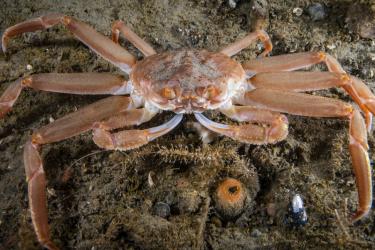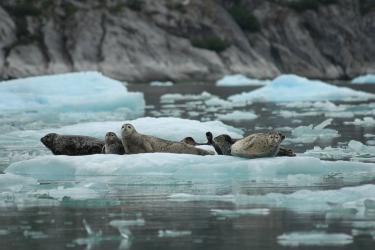NOAA Fisheries monitors and evaluates bycatch of protected species in commercial fishing gear through a multi-stage process that begins with the collection of data by trained fisheries observers. Through this process, our team has been expediting the evaluation of data collected on 10 killer whales incidentally caught in Alaska by Bering Sea and Aleutian Island groundfish trawl fisheries in 2023, which typically takes many months to complete. The vessels involved were required to carry two NOAA Fisheries observers. The incidents involved catcher processor vessels; non-pelagic gear (9 incidental catches) and pelagic trawl gear (1 incidental catch). These incidents occurred between May 6 and September 9, and ranged in geographic location by more than 600 nautical miles.
In one of the incidents, the whale was released alive. For others, NOAA Fisheries is analyzing collected data to determine the cause of injury or death and determine which stocks these whales belong to through a review of genetic information. The agency is working quickly to evaluate these incidents and will share findings as soon as possible, after all required analyses are completed.* We expect to have some preliminary information within the next few weeks.
In addition, NOAA Fisheries is reviewing information regarding a killer whale incidentally caught during the Alaska Fisheries Science Center’s longline survey for sablefish and groundfish this summer. On June 7, a dead killer whale was observed entangled in gear on the Central Bering Sea slope. The incident was reported and is under review in accordance with required reporting procedures. The Center has an incidental take authorization under the Marine Mammal Protection Act and biological opinion under the Endangered Species Act.
Killer whales are protected under the Marine Mammal Protection Act, which requires vessel owners or operators to report to NOAA Fisheries all incidental mortalities and injuries of marine mammals that occur during commercial fishing and survey operations.
* NOAA Fisheries monitors and evaluates bycatch of protected species in commercial fishing gear through an analysis required under the Marine Mammal Protection Act to determine whether the animals were dead before being caught, or were killed or seriously injured by gear.


